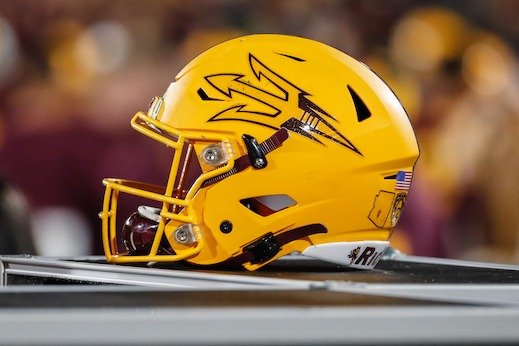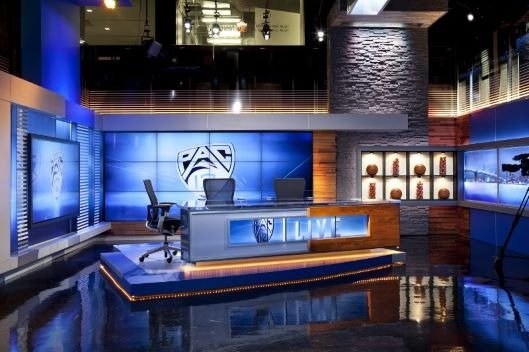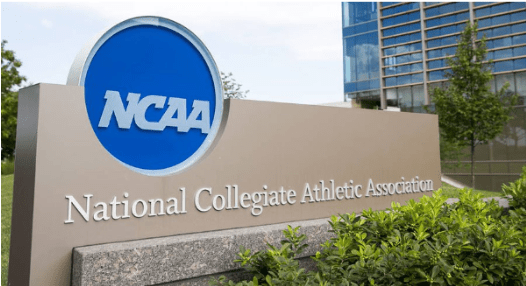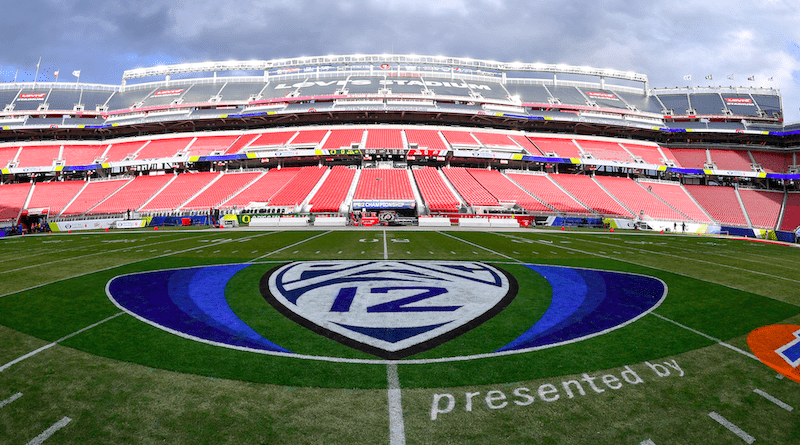Posted on November 2, 2020
|
In their third mailbag answer column, our College Sports Law columnists address questions pertaining to pulling scholarships, self-imposed NCAA penalties, and more. As always, your questions are much-appreciated. (You can ask them here.)

ASU recently dropped three scholarship offers in one day. Do players have any recourse when teams first promise and then rescind such offers?
—Willie in Mesa, AZ
Unfortunately, there is no recourse for the student-athletes who had their scholarship offers pulled. Unless the scholarship offer is in writing, which can only take place August 1st or later of the student-athlete’s senior year, and/or the student-athlete has signed a letter of intent, or a financial aid agreement to play for the school, the school can pull a verbal offer at any time.
Often, prior to the school pulling the offer, the school will reach out to the student-athlete and offer them the ability to rescind his/her verbal commitment and reopen his/her recruitment. It stinks when this happens for the student-athlete, but there is no recourse against the school.

Why is the NCAA petitioning the Supreme Court on scholarship cash limits? How will they reconcile that with the push for NIL rights?
—James in Charlotte, NC
The NCAA is petitioning the court for a stay on the decision from a lawsuit that was filed by former West Virginia players. In the lawsuit, which was decided in favor of the former student-athletes, the U.S. District court issued a permanent injunction against the NCAA’s limits on college athletes making money off their Name, Image and Likeness (NIL), a violation of antitrust laws and an unreasonable restraint on trade.
The NCAA is basically arguing that because the NCAA and Congress have banded together in an attempt to come up with a solution, the Supreme Court should stay (or pause) the U.S. District Court’s decision, because the new rules that will be proposed will, essentially, make the West Virginia case moot. The NCAA is also saying that the rule from the U.S. District Court will do irreparable harm against the NCAA model, which is what the NCAA is actively trying to protect. However, at the same time, the NCAA is changing long-standing rules to allow student athletes to make money off their NIL.
The NCAA is currently working with Congress to propose new NIL rules, which would allow NCAA student-athletes to make money off their NIL under certain restrictions and guidelines. The proposals still have a lot of kinks to work out, but it appears that new rules could be put into practice within the next two years.

What’s your take on the lawsuit by former Iowa players demanding $20 million and the coach’s firing?
—Bryan in Boise, ID
As of now, there has been no formal lawsuit filed against Iowa. However, eight Iowa players have sent a demand letter to the University of Iowa demanding $20 million and Coach Ferentz’ firing—along with a few other assistant coaches. A demand letter is a legal tactic to attempt to avoid litigation. Generally, a demand letter is a letter that lays out the general facts of the case, the theory of liability, and what the injured party is requesting as payment for the damages sustained because of the actions.
In this case, the eight Iowa players are alleging that Coach Ferentz, and other assistant coaches at Iowa, crossed the line from demanding to demeaning. In addition, the demand letter alleges that the coaches used racial slurs and prejudicial language towards black student athletes. The student-athletes wanted to “ensure they are rightfully compensated for their emotional, mental and bodily damages and that Iowa is appropriately held accountable for its unlawful, discriminatory conduct.”
The school, through its general counsel, responded that they declined the monetary and personal demands from the players.
It appears that this case will proceed to litigation, where more of the facts will be shared with the public. A complaint—a legal lawsuit that is filed with the court—will contain specific facts and allegations that support the actions of the Iowa staff.

Do you see any potential legal fall-out from layoffs/furloughs of Pac-12 network staff?
—Francis in San Ramon, CA
Likely there will be no legal fall-out from the layoffs/furloughs of Pac-12 network staff. The network was struggling prior to the pandemic. It appears that the Pac-12 Network may be yet another “COVID casualty.” There is likely a clause in the contract that allows the Pac-12 Network to layoff the staff in a situation that was previously unforeseen, but serious enough to harm the overall value of the network.
It is important when approaching layoffs that the Pac-12 Network does not target a specific class. For example, if the network brought all of its employees together and said, “All employees who are over 40 years of age are immediately furloughed, as we’re concerned about their exposure to COVID-19,” the Pac-12 Network could be in trouble, as you cannot target a specific group of people for termination/furlough/etc.
However, if the network pulled its staff together and said, “as a result of COVID-19, we have to layoff 50% of the employees” and then they did layoff 50% of the staff, without any discriminatory practice, there would likely be no legal ramifications.

I read where the attorney who sued NFL about concussions is now targeting the NCAA. Do you foresee any ramifications for the Pac-12?
—Alice in Arvada, CO
Yes. If the lawsuit moves forward against the NCAA, all conferences, and schools will need to prepare for a lawsuit like the case that was brought against the NFL, including the Pac-12. The NCAA has been more forward-thinking when it comes to protecting NCAA football student- athletes and have implemented several new policies to protect student-athletes from playing with a concussion.
Of course, like the NFL, many of these procedures and policies were not even thought about in the 70s, 80s and 90s.
We would not be surprised if a future lawsuit were to materialize against the NCAA and its respective schools and conferences. The NFL kind of set a precedent with paying a lot of money to the former players. It’ll be interesting to see what type of defenses the universities and conferences use to avoid paying a substantial sum in a settlement.

Does self-imposing penalties for recruiting violations actually help with the NCAA? And how often does the NCAA accept those suggested penalties rather than increase them?
—Jess in Long Beach, CA
The NCAA requires that schools propose penalties for recruiting violations that are based on previously proscribed penalties from similarly situated facts/violations. The NCAA will often look at the penalties that are being proposed and agree with the proposals, minimize the proposals, or strengthen the penalties. However, the more reasonable the school is in self-imposing penalties, the more likely the NCAA is to agree with the proposals.
If the school proposes relatively minimal penalties for serious issues, the NCAA may be upset with the proposals and propose harsher penalties against the offending school. It is extremely important for the school to take the NCAA violations seriously and provide reasonable penalties to the NCAA based on prior penalties for similarly situated facts.
—More from Spencer Kelly and Aaron Price—
- Sports Law Mailbag: Sports Betting, Arizona Hoops Penalties, and NCAA Motives
- Sports Law Mailbag: What’s driving disputes between Under Armour & Cal, UCLA?
-
Sports Law Mailbag: Student-Athletes Have No Recourse for Pulled Scholarships
Plus scholarship cash limits, coach firings, Pac-12 Network layoffs, concussions, and more - November 2, 2020 -
Sports Law Mailbag: Sports Betting, Arizona Hoops Penalties, and NCAA Motives
Plus questions on transgender athletes and COVID-19-related age discrimination - September 16, 2020 -
Sports Law Mailbag: What’s driving disputes between Under Armour & Cal, UCLA?
Plus Pac-12's Title IX pandemic position, Big Ten parents suit, eligibility issues, and more - September 1, 2020

